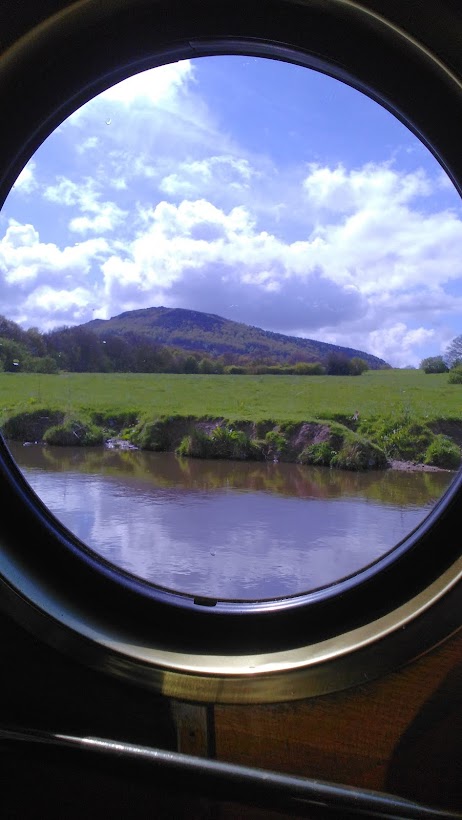Society has always taught me that working hard was the highest moral good, both for myself, my family and the society itself. And so, logically enough, not working hard becomes a secular sin and anyone who does not make work a large part of their life is of less worth and should be scorned in polite society.
I went along with this mantra from when I left school (where this concept was first introduced at the age of five), until I turned 50. I climbed the greasy pole in two professions and worked very hard in the process. My rewards were a comfortable life where I had enough money for necessities and a few luxuries. I had a home where all the essential services were provided at the flick of a switch or the turn of a tap. My home made me feel safe and secure, as did the routine of my working day. I paid a good amount to the state in the form of various taxes and so could be described as a model citizen.
But that life did not come naturally to me and living against my nature took its toll. I never married, nor had children. This was not entirely down to my focus on my career but it certainly didn't help. The pressure at work meant my mental health suffered to such an extent that I not only anesthesed myself with alcohol and tobacco, but I reached the stage of seriously contemplating shuffling off this mortal coil by my own hand.
To avoid suicide I utterly changed my life. I stopped working full time. I abandoned my career, and with it my house and all the comforts of normal society. I moved on to a boat and worked only when I needed money to live.
Now, instead of working hard, I live hard. I source my own water, easy enough in the summer, but can involve searching for an unfrozen water source in winter and barrelling water back to my boat. I provide my own electricity, which relies on my boat engine and so learning to keep it healthy was a high priority (and this for someone who could hardly change a lightbulb without requiring assistance!) Instead of a turning the thermostat up to keep warm, I barrow coal and wood to my stove. Disposing of my rubbish is now a 30 minute round trip. I could go on, but you get the idea. The mere act of survival takes a lot of time and not a little hard work.
Since this type of work is unpaid, I have had to change my lifestyle. Rather than visits to the pub or restaurant, I shop in Lidl or Aldi. Foreign holidays are a distant memory and spending on any non essentials is hard thought through. Because I am alone, there are increased physical risks in a water based lifestyle and because I am living on a very tight budget, there is very little sense of security or safety.
But this life fits my nature so completely that I wonder if I wasn't a boat person in a past life! I am joyful deep in my soul for the first time in my life. My entertainment now is walking for miles with my constant companion Bonny the Cairn. Watching the trees change colour is a treat that is priceless. Holidays involve loosening my ropes and travelling in my home for new views from my loo. My company is mostly a large and diverse group of friends on Facebook. Letting my solitary nature take charge for the first time has improved my mental and emotional health no end.
And this life is not costing anyone else money. I do not trouble the state for any assistance. Recently I stopped paid work entirely and am borrowing what I need from a friend, against a lump sum I shall receive from one of my pensions. I still pay some tax when I buy things and so far the state has still received a lot more from me than I have taken from it. My carbon footprint has shrunk considerably too, which benefits the environment. Because I have time, I can think deeply and listen to others. I can stop and attend to the unexpected interruption in my day. And sometimes my sharing of fruits of this life benefits others.
Having a job is necessary for almost every one of us for periods of our life. It is also necessary for the smooth running of society. But is it the only route to salvation in our secular world? Do we really still believe in it as the highest form of living when the mental health of both our children and adults are buckling under the ever increasing pressure? Can our planet sustain us continuing to work ever harder and thereby producing more in the way of pollution, plastic and land grabbing? Do we really want to see 80 year olds working at the Tesco checkouts?
Perhaps more of us need to examine whether we can live closer to our true natures. If we buy less, we can work less. This is a truth hidden from us by a blizzard of advertising. For some, perhaps most, a career does suit their nature. Working hard may help people feel useful, worthwhile and gives a reason to get out of bed each morning. In order to spend a large proportion of their time working, most people need the services on which life depends provided for them at the flick of a switch. Having lots of possessions and being able to spend money may help us feel safe and secure.
My question is: do we really still believe that this 'working hard' life is morally superior to a 'living hard' life?

